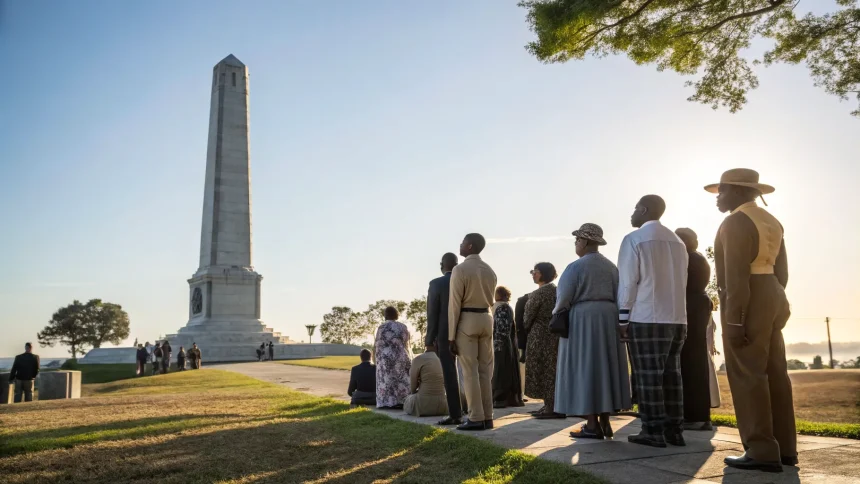Descendants of the last ship to bring enslaved Africans to the United States gathered Saturday in Mobile, Alabama, to honor their ancestors through a memorial ceremony. The event brought together the remaining family members connected to the 1860 voyage that marks a significant chapter in American history.
The ceremony took place in Mobile, where the ship Clotilda arrived over 160 years ago, carrying captive Africans despite the fact that the international slave trade had been outlawed in the United States since 1808. This clandestine operation represents one of the last known instances of Africans being forcibly brought to American shores for enslavement.
Historical Significance
The Clotilda’s voyage occurred more than 50 years after the U.S. officially banned the importation of enslaved people. The ship’s owner, Timothy Meaher, a wealthy Mobile businessman, allegedly made a bet that he could bring a shipment of enslaved Africans into the country without being caught by federal authorities.
After delivering its human cargo, the Clotilda was burned and sunk in an attempt to destroy evidence of the illegal operation. The ship’s remains were discovered in 2019 in the Mobile River, confirming the historical accounts passed down through generations of descendants.
The Africans brought aboard the Clotilda were kept as slaves until the end of the Civil War. Following emancipation, unable to return to Africa, many of them pooled their resources to purchase land near Mobile. They established a community known as Africatown, where they maintained their African traditions, language, and culture.
Community Preservation
Today’s descendants continue to fight for recognition and preservation of their unique heritage. The memorial ceremony serves as both a solemn remembrance of the trauma endured by their ancestors and a celebration of their resilience and cultural survival.
“This gathering is about honoring those who came before us and ensuring their story isn’t forgotten,” said one descendant at the ceremony, reflecting the community’s commitment to preserving their history.
The discovery of the Clotilda’s remains has sparked renewed interest in this chapter of American history. It has also provided tangible evidence for the oral histories that descendants have maintained for generations, validating their family stories and community identity.
Legacy and Recognition
The memorial event comes at a time of increased national attention on the Clotilda story. Recent years have seen growing recognition of Africatown’s historical importance, including:
- The opening of the Africatown Heritage House museum in 2023
- Ongoing archaeological work at the Clotilda wreckage site
- Educational initiatives to incorporate this history into school curricula
Historians note that the Clotilda’s story represents one of the most well-documented cases of illegal slave trading in the final years before the Civil War. The ship’s voyage occurred just a year before the outbreak of the conflict that would eventually end slavery in America.
The descendants’ gathering highlights the living connection between present-day Americans and this painful chapter of history. Many attendees traveled from across the country to participate in the memorial, demonstrating the widespread diaspora of Clotilda descendants.
Local officials also attended the ceremony, acknowledging the historical injustices and expressing support for ongoing preservation efforts in Africatown. Community leaders emphasized the importance of economic development and environmental protection for the historic area.
As the ceremony concluded, participants reaffirmed their commitment to honoring their ancestors by continuing to tell their stories and fight for the recognition of Africatown’s place in American history. The gathering served as a powerful reminder that the legacy of the Clotilda is not merely historical but continues to shape lives and communities today.









